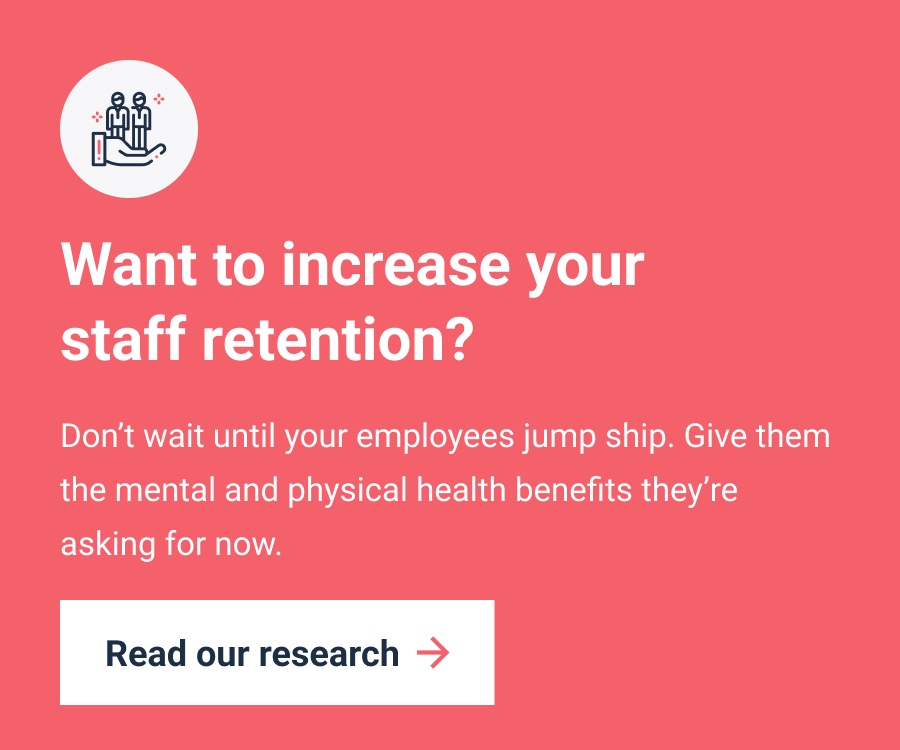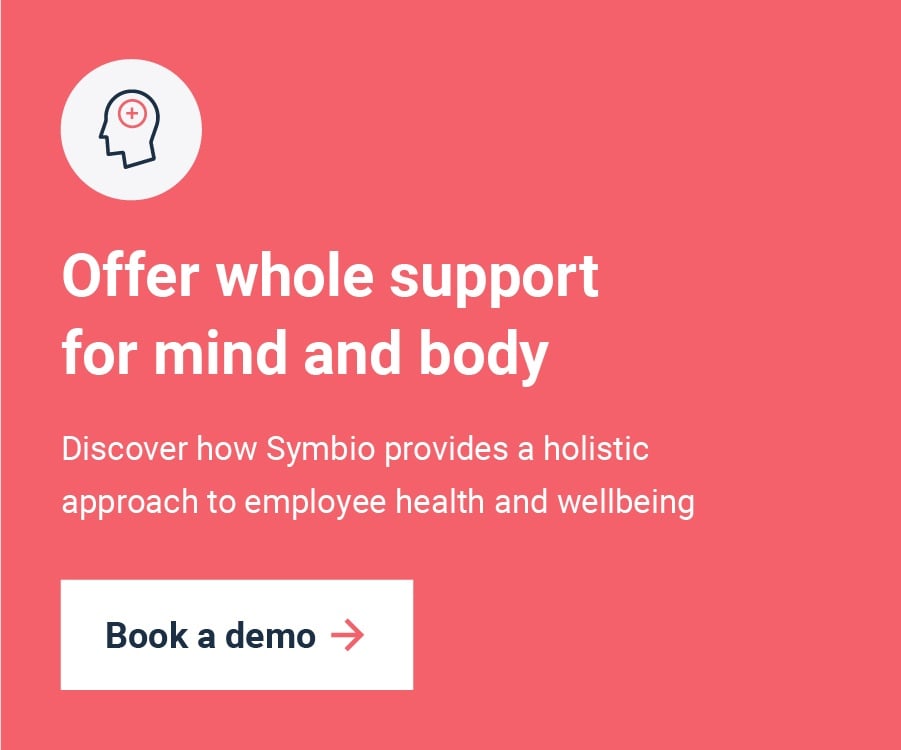Escalating energy bills, rising food prices, and spending cutbacks; this is the harsh reality for millions of people across the globe as we head into 2023. In the UK alone, over 90 percent of adults say their cost of living has increased within the last year.
As an employer, you may assume this crisis and its consequences are outside of your remit. However, this situation doesn’t just impact your employees’ finances - it can affect their mental and physical wellbeing too. This, in turn, can affect their performance at your workplace.
We’re not recommending increasing salaries or other expenditure during hard times. There are other ways you can help your workforce cope with this crisis.
Acknowledging the impact
Money is already one of the biggest stressors in the UK, with 39 percent of adults saying it causes them stress. Couple this with the severity of the cost of living crisis and its impact on family members and friends, and it’s more than reasonable to expect stress levels to rise.
Of course, prolonged stress can have a significant impact on your employees’ mental wellbeing, physical health, and daily habits. Consider the following:
- 49 percent of adults claim their behaviour changes when they’re stressed. This includes an increase in irritability, which may affect workplace relations.
- 51 percent of stressed adults report feeling depressed (and 61 percent report feeling anxious).
- 29 percent of stressed adults drank more alcohol. A high intake of alcohol may increase the likelihood of fatigue, depression, and physical sickness, or indeed exacerbate other problems.
- 51 percent of adults suffer from fatigue as a result of stress, 44 percent experience headaches, and 34 percent deal with upset stomachs.
If we want you to take anything away from these statistics, it’s this: stress isn’t an invisible or harmless thing. Left unchecked, prolonged stress can spiral into a myriad of healthcare problems.
What can you do as an employer? 3 tips
Over 70 percent of UK adults admit to worrying about rising costs. This means there’s a high chance the majority of your workplace is worrying about it, too.
In these trying times, it’s important to band together and provide support where you can. Here are three ways you can help:
1. Open up the conversation
Talking about our problems makes us feel better. In fact, the act of opening up can improve our immune system as well as reduce physical and emotional distress. Not to mention, bonding during hard times can increase happiness too.
So, try to tackle the stigma around financial troubles. Create supportive communities and provide opportunities for discussion in your workplace. You may choose to create spaces dedicated solely to the topic of the cost of living crisis, such as Slack channels or fortnightly lunchtime meetings. Allow your employees to air their feelings and share any helpful tips in these spaces.
2. Provide cost of living crisis resources
You may not have the expertise to help your employees with their individual financial concerns. So direct them to people who can help.
We’d recommend sharing reputable resources, such as:
- The UK Government’s support page. This offers resources around financial benefits and payment schemes.
- The Trussell Trust’s Help through Hardship helpline. Your employees can receive support to help maximize their income and explore any applicable grants.
- The Money Saving Expert website. Run by founder Martin Lewis, this website contains a wealth of resources around managing finances and budgeting.
3. Enhance your wellbeing benefits
A physically and mentally unwell workforce will take more sick days and struggle with performance. This, of course, may contribute to their overall stress levels.
It’s a nasty cycle. But one that you can break by providing the right wellbeing benefits.
To find out what will work best for your employees, we’d suggest:
- Taking stock of employee stress levels. Conduct an anonymous employee wellbeing survey and gather metrics around stress levels, healthcare concerns, and absences. Are your employees feeling less or more resilient than before the cost of living crisis?
- Auditing your current wellbeing benefits. Ask your employees what they like about your benefits and, more importantly, what they use.
- Identifying gaps in your wellbeing offerings. This could simply be a communication gap. For example, if your employees aren’t aware of certain services you offer, you may need to enhance your employer messaging. But you might also find your benefits don’t meet employee expectations. Whether it’s an accessibility issue or a fundamental gap in your benefits package, try to pinpoint what your employees would value.
- Investigating alternatives. If you discover your benefits don’t quite hit the mark, it may be high time to look at other alternatives on the market. Let your employee needs guide you. Do they want extended support for their families?
Take Symbio as an example. Symbio is our holistic healthcare app that blends physical and mental support into one. It offers clinically-valid healthcare services, personalised advice, counselling, 24/7 GP access, and more. Better still, your employees can easily access it via their smartphones.
Additional support for hard times
In difficult times, it can be all too easy to focus on the negatives. But your employees are already aware of the hardships.
Instead, we want you to focus on the differences you can make as an employer. By building supportive communities, sharing helpful financial information, and enhancing your health benefits, you can improve employee wellbeing and reduce stress. That way, your workforce will feel more resilient and better equipped to tackle what lies ahead.
If you’d like to learn more about Symbio and how it can help your workforce, book a demo today.






